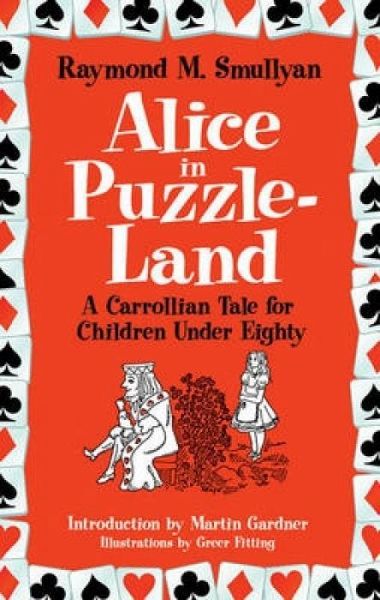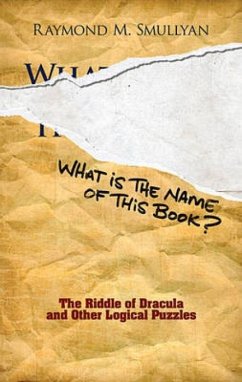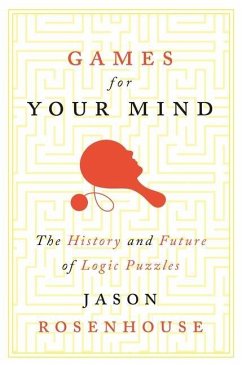
Alice in Puzzle-Land
A Carrollian Tale for Children Under Eighty
Illustrator: Fitting, Greer
Versandkostenfrei!
Versandfertig in 2-4 Wochen

PAYBACK Punkte
9 °P sammeln!




Characters from Wonderland and Through the Looking-Glass populate these 88 puzzles involving word play, logic and metalogic, and philosophical paradoxes. The charmingly illustrated challenges range from easy to difficult and include solutions.
Raymond Smullyan received his PhD from Princeton University and has taught at Dartmouth, Princeton, Indiana University, and New York's Lehman College. Best known for his mathematical and creative logic puzzles and games, he is also a concert pianist and a magician. Raymond Smullyan: The Merry Prankster Raymond Smullyan (1919- ), mathematician, logician, magician, creator of extraordinary puzzles, philosopher, pianist, and man of many parts. The first Dover book by Raymond Smullyan was First-Order Logic (1995). Recent years have brought a number of his magical books of logic and math puzzles: The Lady or the Tiger (2009); Satan, Cantor and Infinity (2009); an original, never-before-published collection, King Arthur in Search of His Dog and Other Curious Puzzles (2010); and Set Theory and the Continuum Problem (with Melvin Fitting, also reprinted by Dover in 2010). More will be coming in subsequent years. In the Author's Own Words: "Recently, someone asked me if I believed in astrology. He seemed somewhat puzzled when I explained that the reason I don't is that I'm a Gemini." "Some people are always critical of vague statements. I tend rather to be critical of precise statements: they are the only ones which can correctly be labeled 'wrong.'" — Raymond Smullyan Critical Acclaim for The Lady or the Tiger: "Another scintillating collection of brilliant problems and paradoxes by the most entertaining logician and set theorist who ever lived." — Martin Gardner
Produktdetails
- Verlag: Dover Publications Inc.
- Seitenzahl: 192
- Altersempfehlung: ab 12 Jahre
- Erscheinungstermin: 8. Dezember 2011
- Englisch
- Abmessung: 222mm x 139mm x 18mm
- Gewicht: 234g
- ISBN-13: 9780486482002
- ISBN-10: 0486482006
- Artikelnr.: 33382220
Herstellerkennzeichnung
Libri GmbH
Europaallee 1
36244 Bad Hersfeld
gpsr@libri.de
Für dieses Produkt wurde noch keine Bewertung abgegeben. Wir würden uns sehr freuen, wenn du die erste Bewertung schreibst!
Eine Bewertung schreiben
Eine Bewertung schreiben
Andere Kunden interessierten sich für











